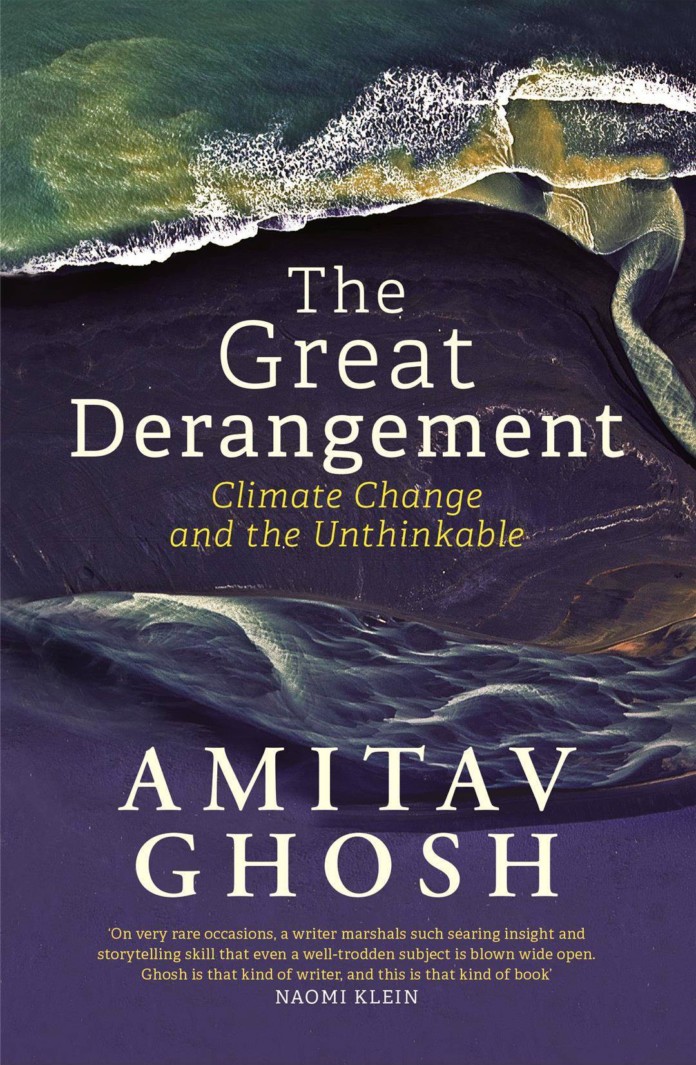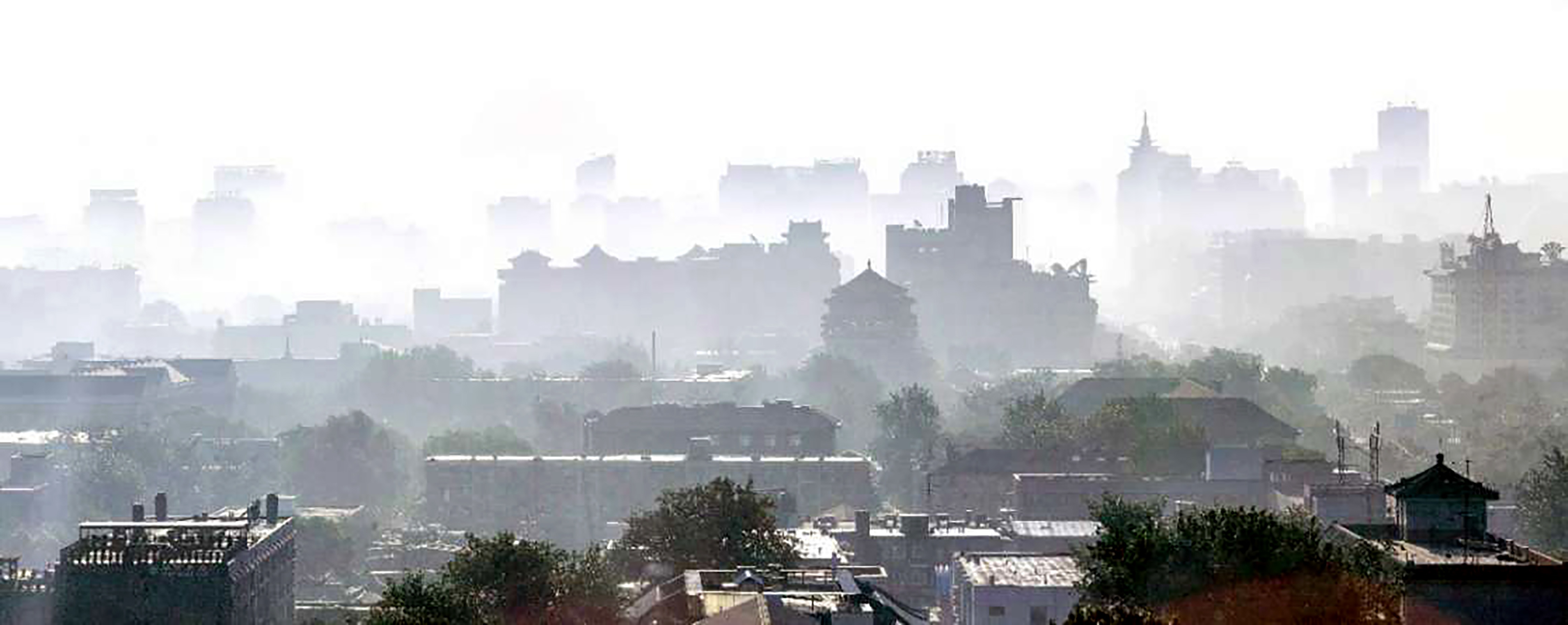Amitav Ghosh’s latest book ‘The Great Derangement – Climate Change and the Unthinkable’ has come as a big surprise because you don’t expect a celebrity, mostly fiction author, to write on the ecological dangers facing planet earth. Even if scientists or the Greens don’t take him seriously, he is already drawing massive attention to a subject that the middle class has been caring the least – climate change. His is a fresh voice in the conversation about climate change.
This is a massive eye opener. The Indian middle class believes that it is insulated from most of the problems the country faces and thinks it is the poor who have to deal with them. At a recent book launch in Bengaluru Ghosh said: “People think the poor will be worst affected by climate change but that’s not true. I think it will be the middle classes. The rich can fly off in their helicopters to safer places and the working classes still have their rural connections. They have somewhere to go if an evacuation order is given. What will the middle classes do? They have built their lives in the city, they have no other connections.”
Ghosh is appalled at the lack of seriousness about climate change in India. This is largely because Indians refuse to see the signs staring right in front of their eyes. It’s also partly because the media coverage of disasters such as the recent rains in Chennai, and floods in Mumbai in 2005, was superficial. He said: “Somehow in India people don’t seem to have any understanding of the depth and seriousness of the threats that face us. Take the case of Chennai — it was a traumatizing event but when I tried looking for writing about it, there’s nothing. Similarly, the Mumbai floods, there’s reportage in those few days but first-hand accounts, memoirs, stories, poems, where are they?”
He wonders why there is no imaginative discourse on climate change in India. The big question facing us is ‘How do you get the sense of urgency out?’ The conversation has to move from bureaucrat and expert groups to the civil society. We cannot deal with climate issues technocratically.
Ghosh wonders why even popular art and cinema is not talking about climate change. “When a traumatizing riot takes place, people are producing accounts in days. Mumbai is the seat of Indian cinema; Chennai is the seat of Tamil cinema. There are so many poets and writers and yet nothing in the mainstream about this experience. Why does this not register? My hope for this book is that it will start these conversations, make people raise these questions.”
The C word is Consumption, not Climate
Is there a sense of powerlessness about climate change, asked Sunita Narain, head of the Centre for Science & Environment, Delhi, during a chat at Ghosh’s book launch in Delhi recently.
“Climate change reflects intolerance. The C word is not climate, but consumption,” she said. “The majority of the people across the globe who are affected by climate change are not at the table on global dialogues and summits. Men in suits are worried about comas and full stops while the climate is running away.”
Narain said she has heard people tell her that there will be technological fix and we all live in hope of something will come (to avert disaster). “The only thing that has happened in the last 30 years is we have moved from coal to shale.”
Efficiency vs Consumption
Ghosh refers to Jevons’s Paradox which states that energy efficiency always leads to greater consumption – the rate of consumption
of that resource rises because of increasing demand. “Climate change cannot be solved at the level of efficiency but at the level
of consumption.”
He said modern literature is all about freedom and that includes freedom to consume at will. Technology is depicted as a savior. Even the Paris Accord (December 2015) is about technology and not change in lifestyles.
The only global document that talks about moving to simple life style is Pope Francis’ Encyclical in May 2015.
Power and Climate Change
Conversation about climate change is usually about energy, carbon, technology, but ultimately, Ghosh said, “Climate Change is a relationship of power (among nations) – there is a very close relationship between emission and power. This is the crux of it. This lies at the heart of climate change and it is not addressed at the global level.”
Watch Amitav Ghosh & Sunita Narain in conversation
https://www.youtube.com/watch?v=XQyfJPrHLDw
Middle Class Matters to Markets and Policy
According to a UBS report, if climate change erodes middle class wealth, the cities where they reside will also suffer economically. The world’s large global cities, where nearly 25% of the global population lives, generate about half of global GDP. Most of the global middle class resides in cities in Southeast Asia, which has had the fastest urban population growth in recent years.
The World Bank estimates that more than half of China’s population is urban, up from less than a quarter in 1985. With so much of the world’s population concentrated in urban areas, the health and wealth of global cities are not only crucial to a nation’s economic growth, but also to the growth of many global companies. The middle class matters to markets and policy, and markets and policy matter to investors.
https://www.ubs.com/microsites/climatechange/en/home.html#sectionheader-sectionheader_5
WEF says Middle Class Will Be Worst Hit
Excerpts of a report published by the World Economic Forum on impact of climate change on the middle class in January 2016
As middle-class wealth erodes, there could be a significant impact on the global economy. The report sees cities as future centers of middle-class populations. Today, cities generate around half of global GDP. However, as the risks faced by urban middle-class populations increase, so too does economic instability.
This risk will be particularly keenly felt in Asia, where rates of urbanization are highest. Asian nations are among the worst hit by weather-related disasters. However, levels of insurance remain low. Between 1980 and 2014, just 9% of losses in Asia were insured. Even in the US, a third of losses
were uninsured.
Lack of protection increases the economic consequences of disasters caused by climate change. This risk could be felt not only locally, but also on a global level. Equally, economic development will increase the volume and value of infrastructure, especially as the middle-class population increases. In turn, this will increase financial losses.
However, there are potential positive outcomes. Globally, people are concerned by climate change, and believe they will need to change. UBS cites the relative political and social power of the middle class, which could see them increase calls for climate action. Pressure applied to governments and other organizations could increase efforts to limit emissions.
The report concludes that “the forces that make the middle class suffer and adapt to climate change are the same forces that are likely to stir the middle class to political activism”.
https://www.weforum.org/agenda/2016/01/climate-change-will-hit-middle-class/











